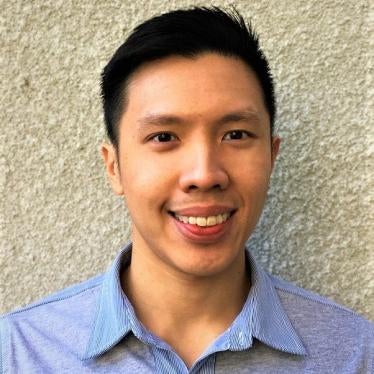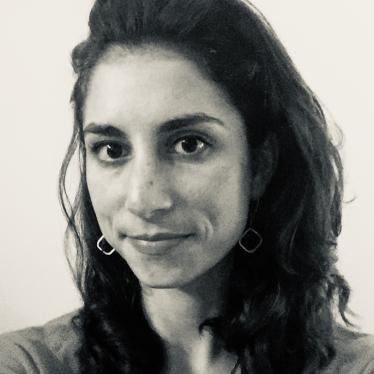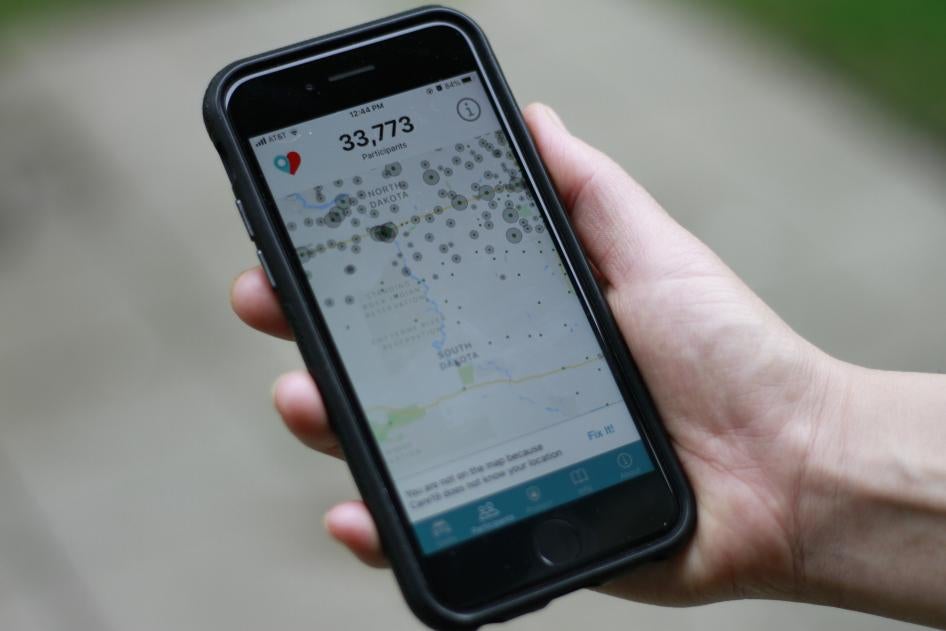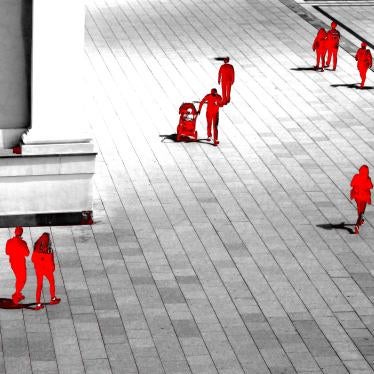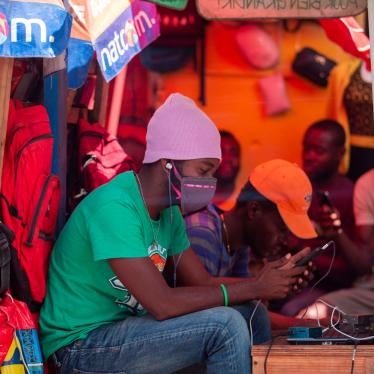Amid protests against racism and police brutality in Minneapolis, Minnesota Public Safety Commissioner John Harrington likened police investigations of arrested protesters and their associates to contact tracing for COVID-19. This reckless analogy stokes fear that governments will seize on the pandemic to introduce intrusive surveillance in the guise of measures for the public’s health.
We are particularly concerned that the normalization of digital contact tracing would be a double blow for communities in the United States and abroad that have suffered longstanding human rights abuses. First, experiments with unproven technology could displace funds for basic measures that are known to be effective in protecting those most vulnerable in the pandemic. Secondly, such tracking could open a dangerous new front in the surveillance and repression of marginalized groups.
Proponents of digital contact tracing believe that mobile tracking technologies can automate – or at least supplement – the labor-intensive work of identifying people who have been exposed to COVID-19. However, the push for ‘exposure notification’ apps and other forms of tech-assisted contact tracing has so far glossed over systemic inequalities in how people access technology.
Oxford University researchers project that governments will need more than half of the population to adopt contact-tracing apps to see meaningful impact. But industry analysts estimate that up to 2 billion mobile phone users worldwide do not own devices that are configured to support Bluetooth-based tracing, a popular version of the technology. Disparities in access could further undermine uptake: only about 52 percent of the population in Latin America use mobile internet regularly; in sub-Saharan Africa, it’s 23 percent.
Some of those at high risk of COVID-19 exposure also live in conditions that are incompatible with digital contact tracing. The idea that users are uniquely linked to their phones – an implicit assumption of contact-tracing apps – is frequently out of step with how they use technology.
Bangladesh, which hosts the largest refugee camp in the world for Rohingya refugees from Myanmar, has imposed an internet blackout and confiscated camp residents’ SIM cards, ostensibly for security reasons. Refugees living in camps elsewhere are known to switch between multiple SIM cards to cope with unreliable connections, which would thwart contact-tracing apps.
In the Persian Gulf, the advocacy organization Migrant-Rights.org told us, “A large percentage of [migrant] domestic workers either don’t have a phone as employers disallow it, or do not have credit to use it.” Even if migrant workers have phone access, they might “share a single device,” said Esra’a Al Shafei, executive director of Majal.org, a digital rights organization based in Bahrain. As a result, phone-based tracing “cannot be that accurate or sound.”
In the United States, many homeless adults who do have access to phones cannot afford data plans. Studies also show that they change cell phones and phone numbers frequently, complicating public-health interventions that require regular online contact.
For many disadvantaged groups, digital contact tracing would not only be ineffective, but also a danger to their rights. A weak user base could generate misleading data that undermines the public-health response. Experts worry that a high rate of false negatives – where the app fails to warn users even though they were in fact exposed – could lead to the misguided relaxation of social distancing practices and other protective measures.
False positives, on the other hand, may compel marginalized groups to take costly action based on inaccurate warnings. Low-wage workers shipping online orders, stocking shelves, or delivering groceries risk losing income or even their jobs if they call in sick. For undocumented immigrants, visiting the hospital or a testing center risks deportation. False positives could also have a chilling effect on peaceful protests, during a time when they are one of the few remaining avenues to hold police and elected officials accountable.
To increase public trust in contact-tracing apps, some governments have committed to digital contact tracing that protects the right to privacy. But this may not be enough to quell mounting concerns about their potential for surveillance, especially in countries where police and security forces operate with impunity. Furthermore, privacy-preserving protocols are not a panacea, and tend to overlook people who cannot afford secure or reliable mobile connections.
According to a Privacy International study, many low-cost smartphones have inherent security vulnerabilities that are almost impossible to rectify, exposing their users to increased surveillance and hacking. Cheaper Android models are particularly susceptible to delays in critical security updates. While the move to ensure robust encryption and other technical safeguards is a step in the right direction, these protections do not fully mitigate security weaknesses of already vulnerable devices. Amid escalating tensions between protestors and the police — not only in the United States but around the world — these devices are potent surveillance targets.
In any event, the promise of privacy-preserving contact tracing is elusive in places “where extreme censorship and surveillance are already our norm,” said Al Shafei. Repressive governments have launched sophisticated spyware attacks on human rights defenders, activists and journalists with alarming frequency, exploiting data on their phones to conduct abusive interrogations, undermine reporting, and suppress dissent. Contact-tracing apps that generate sensitive health and social networking data about these communities increase the opportunities for abusive surveillance.
It is no coincidence that many of those hardest hit by the pandemic have also suffered decades of abuse and neglect at the hands of the police, whether in the United States or elsewhere. As these communities take to the streets to march for accountability and justice, governments should prioritize proven virus-containment methods to protect their rights and their health. These include expanding access to accurate testing, and access to adequate water, shelter, sanitation, and health care. There is no app for that.
